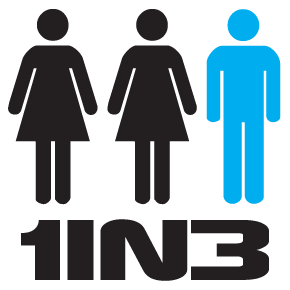Male Abuse Victims Wait Until Abuse Becomes Extreme (NZ)
Men are suffering from domestic abuse, but embarrassment usually stops them coming forward until it is extreme, police say.
Men often waited until knives were pulled before seeking help, Detective Sergeant Alan McGlade, of the Hamilton police family safety team, said.
Most reports of abuse against males were either of psychological or extreme physical violence, such as stabbings.
"If I think about women abusing men, some of the violence is quite serious," Mr McGlade said.
"The men think, ‘Oh, she gives me a slap, I'm not going to tell anyone, but she stabs me, well . . ." A 30-year-long study beginning in 1977 by Professor David Fergusson, which sampled 1000 people in Christchurch, found levels of victimisation and perpetration of abuse were similar for both men and women.
Victimisation rates were slightly higher for men surveyed, with 6.7 per cent of men and 5.5 per cent of women admitting to minor violence against their partner, and 2.8 per cent of men and 3.2 per cent of women admitting more serious violence.
Psychologists say abuse against men exists, emotionally and physically, but is under-reported because men are usually too embarrassed to say anything.
Men also find it difficult to ask friends or workmates for help, because people tend to underestimate the seriousness of the problem and may judge them for not being able to handle it.
Mr McGlade said police had a tendency to side with women during a domestic abuse callout. Cases were difficult if a man had been abused, because it was often a matter of the woman acting in self-defence.
One 22-year-old man who wished to remain anonymous said he had suffered extreme physical abuse at the hands of his fiancee for about a year. He had felt he could not call police for help.
"If we're having a fight, she bruised quite easily," he said. "She'd often have bruises around her arms where I was holding her back. No matter what I said, they'd probably take me to jail."
Mr McGlade said if police were called out to a domestic abuse incident and both people were harmed and said they were assaulted, they would both be arrested and charged.
"We are trying to get the training across that you've got to listen to both sides," he said.
"The victim is a victim, regardless of whether they're male or female."
Adult victim advocate Helen Heta said: "Even though a guy can look like he's the Hulk, there's still a psychological and emotional abuse that women can be very good at putting other men and women through."
She said little support was available for male victims but if more programmes for men were available, they were more likely to report abuse.
MELISSA WISHART
- © Fairfax NZ News

